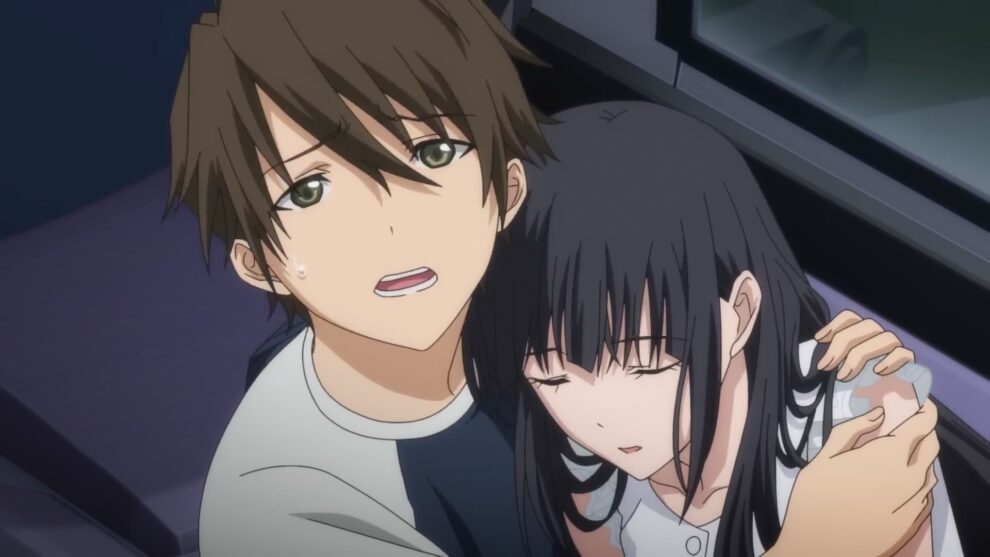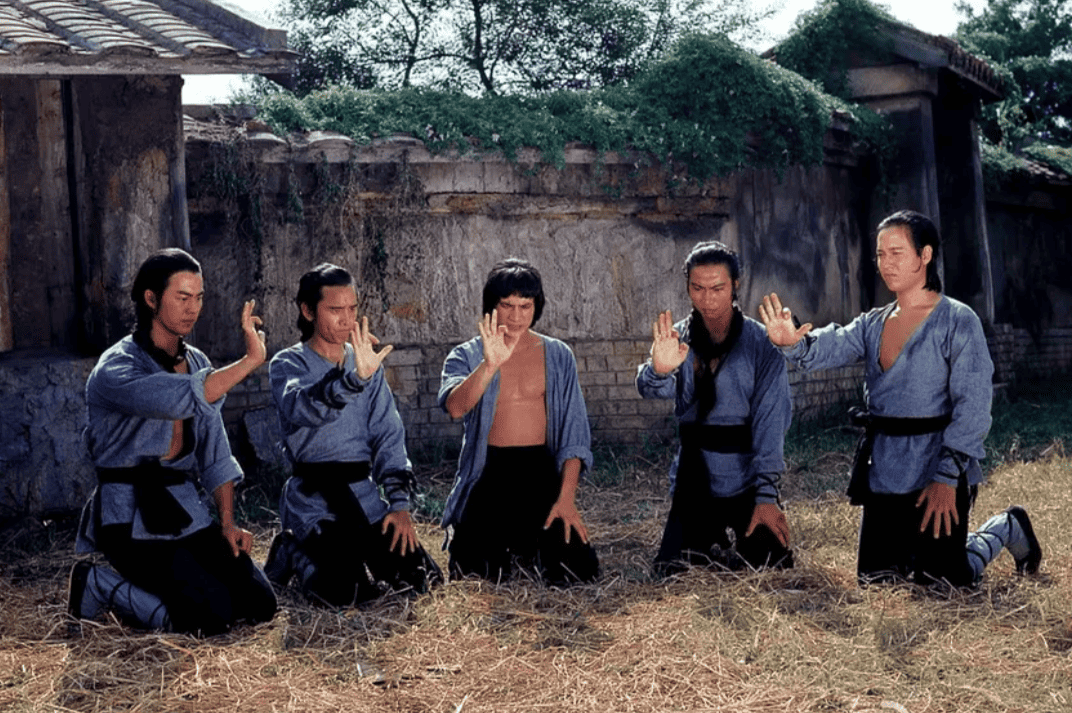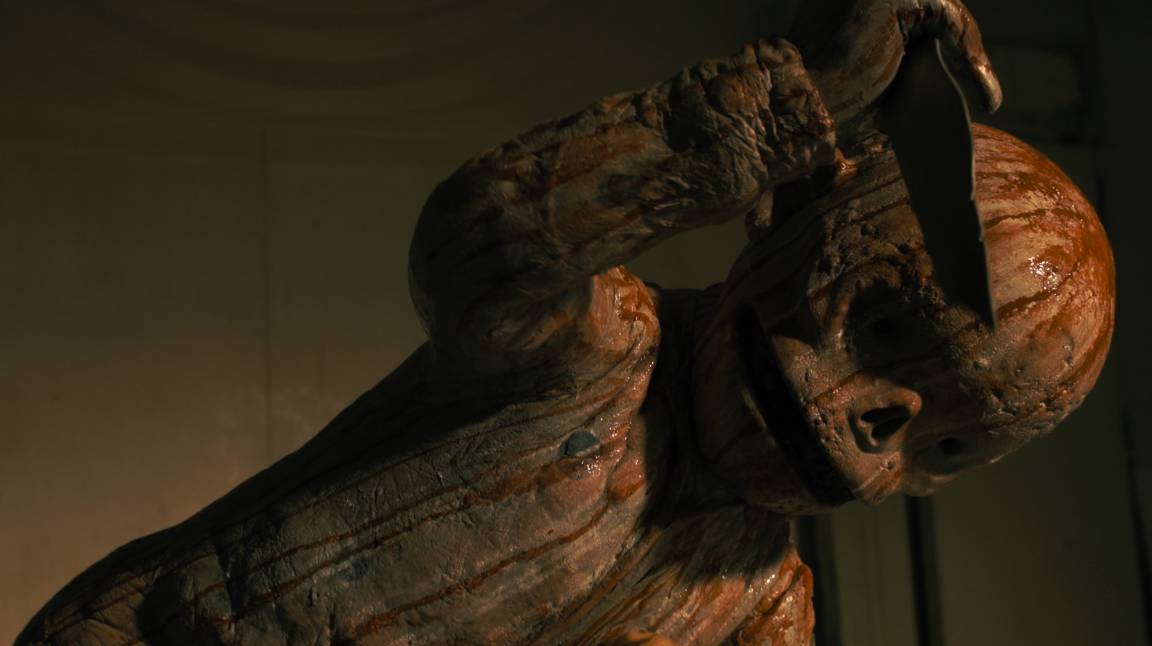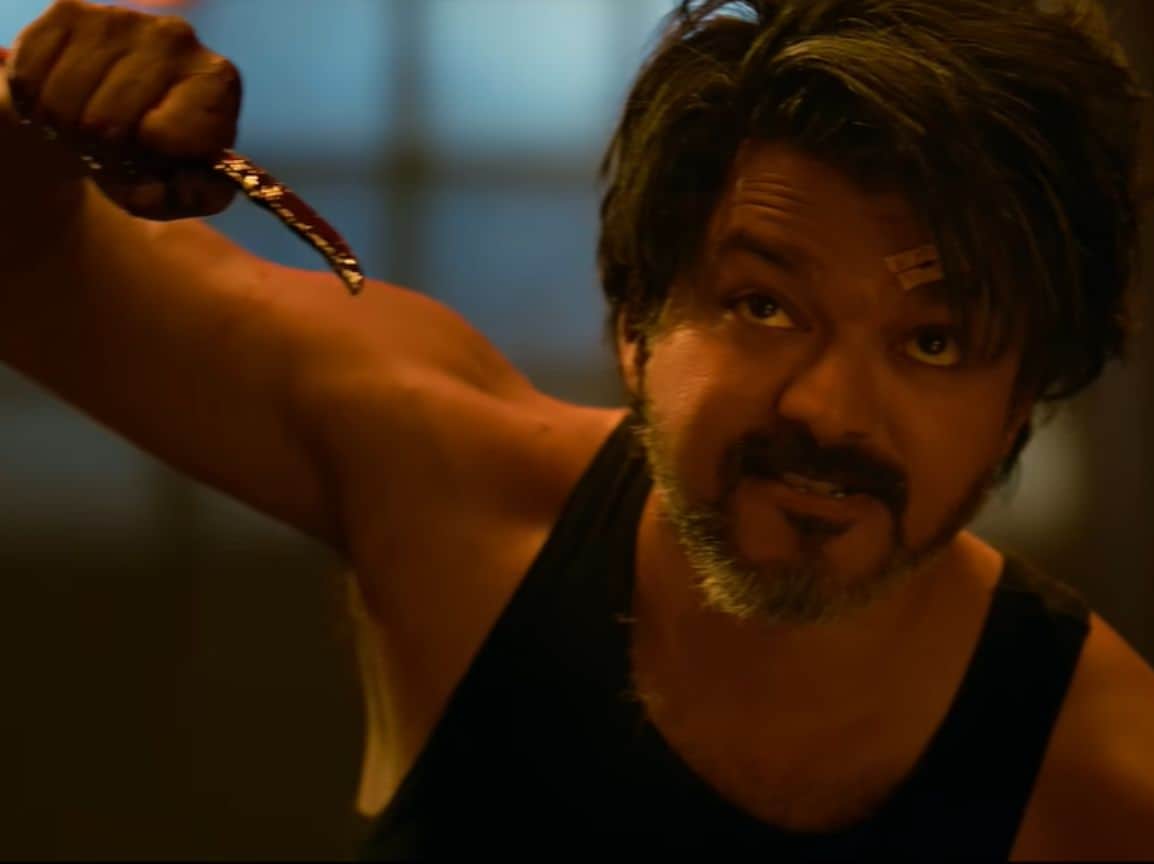Based on two Japanese science fiction romance novels written by Yomoji Otono and published by Hayakawa Publishing on June 23, 2016, “To Me, The One Who Loved You” and “To Every You I've Loved Before” are part of a duology which is supposed to be watched subsequently, with the order not being an issue. In this article, we are going to focus on the former, while the review of the latter will also contain a more wholesome analysis of the full concept.
Watch This Title on Crunchyroll
by clicking on the image below
The story takes place in a world where people have the means to temporarily swing between realities. It is this way that the protagonists of the movie meet. Koyomi Hidaka is an elementary school student who lives with his father after his parents divorced and stumbles upon Shiori Sato, a girl his own age whose single mother also works with his father, the day his dog dies. Shiori, seeing him sad, introduces him to the machine that can transport him to another reality, with Koyomi briefly managing to see his dog again before he returns back to his current timeline.
This is how the romance between the two begins, carrying them all the way to highschool, where their feelings become quite difficult to hold back. However, when their parents inform them that they are about to get married, the desperate couple decide to travel together to a reality where their parents have not met, and continue their relationship there. Unfortunately, the “travel” has a tragic ending for both, with Koyomi then spending the rest of his life trying to find a way to change Hiromi's fate, blaming himself for what happened. Eventually, another girl comes to his life, Kazune Takigawa, a brilliant scientist that has been “chasing” his genius since their school days, and agrees to help him in his research. Koyomi, however, has only one thing in mind and is not shy of waiting until his old days to achieve it.
Allow me to begin with the negative aspects of the movie. The most obvious one is that the production values are not particularly high, with Shinichi Machida's character design being somewhat blunt, without particular attention to detail, especially regarding the faces of the protagonists, all of which are rather generic. The same applies to the background drawing and the animation by TMS Entertainment, which is realistic in terms of movement, but again, nothing special. Regarding the animation, however, one could say that the approach is purposeful, in order to allow the title to focus on the story and the characters, instead of impressing with extravagant movement. The story itself, furthermore, does become overcomplicated as time passes and the time axes intermingle, with Kenichi Kasai somewhat losing the measure of the narrative after a point.
Apart from the aforementioned, though, there are a number of positive aspects in the film, particularly having to do with the story and the characters. The way the romance of Koyomi and Sato begins, continues, and is disrupted is captivating, adding a very appealing sense of drama to the story, which, thankfully, never crosses the border of the melodrama. The shock of hearing their parents are getting married, and the irony of their mistake in their despair are quite impactful, essentially justifying Koyomi's obsession with correcting what happened. The appearance of Kazune, who obviously has feelings for Koyomi but finds herself having to face an “adversary” that does not even exist, is another point of appeal. The way she decides to eventually help him is an act of love as much as his insistence to reach old age in order for his plan to succeed, in a true triumph of the sentiment that carries the movie for the majority of its duration. Small scenes, like the one with the Guiness, add an appealing element of subtle comedy in the narrative that also works quite well.
Furthermore, the comments about how love can essentially destroy people's lives, how the lack of communication between parents and children can lead to a number of issues, and how science can provide solutions to more than practical issues conclude the rather rich context of the anime.
In the end, “To Me, The One Who Loved You” emerges as a mixed bag, since the quality of the visuals and the somewhat convoluted story does not allow the comments about the complexities of love and the human experience to be fully appreciated. As a whole, however, I would say that the sum lingers to the positive side, in a film that fans of slice-of-life and romantic drama will definitely appreciate.














